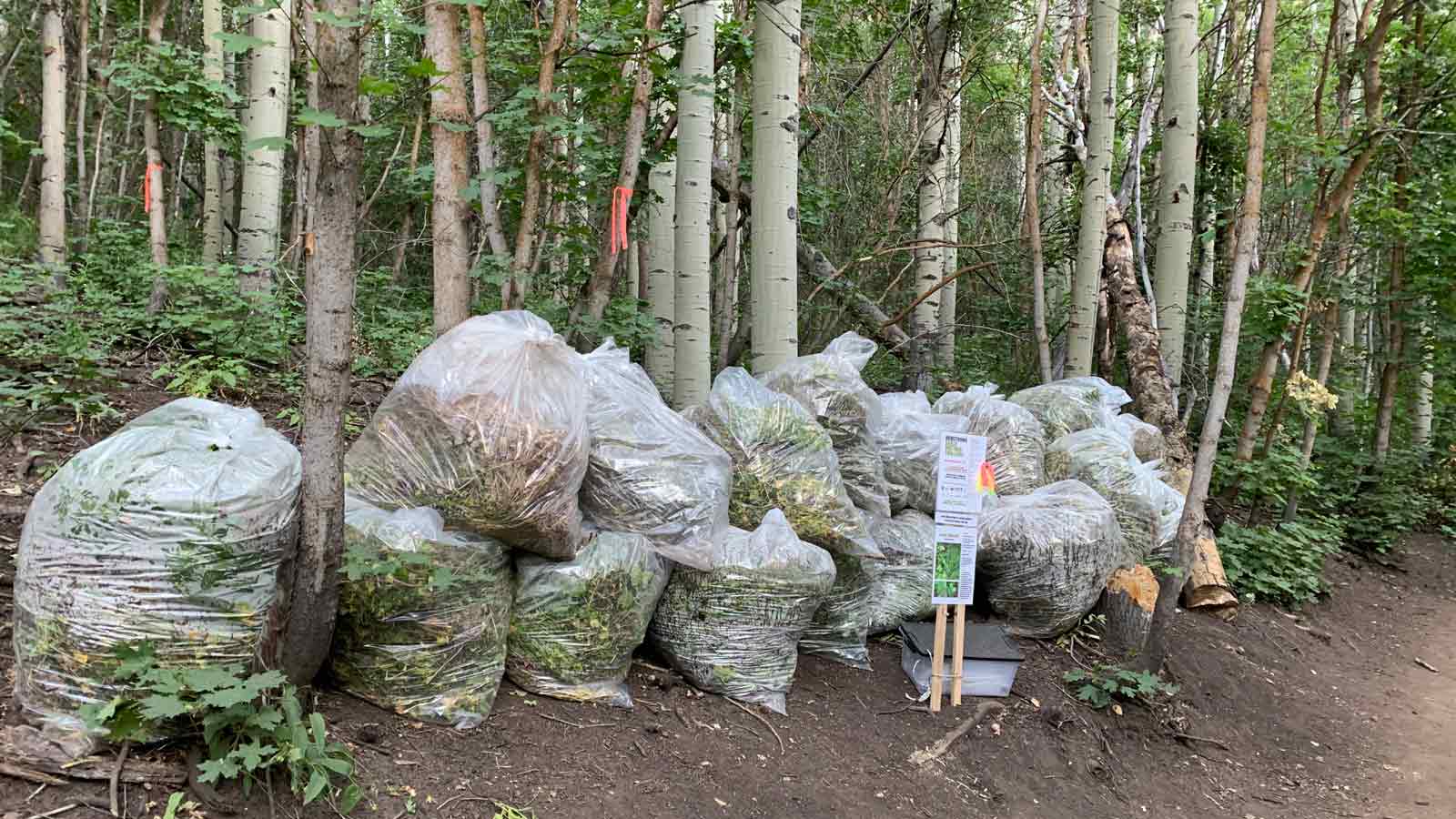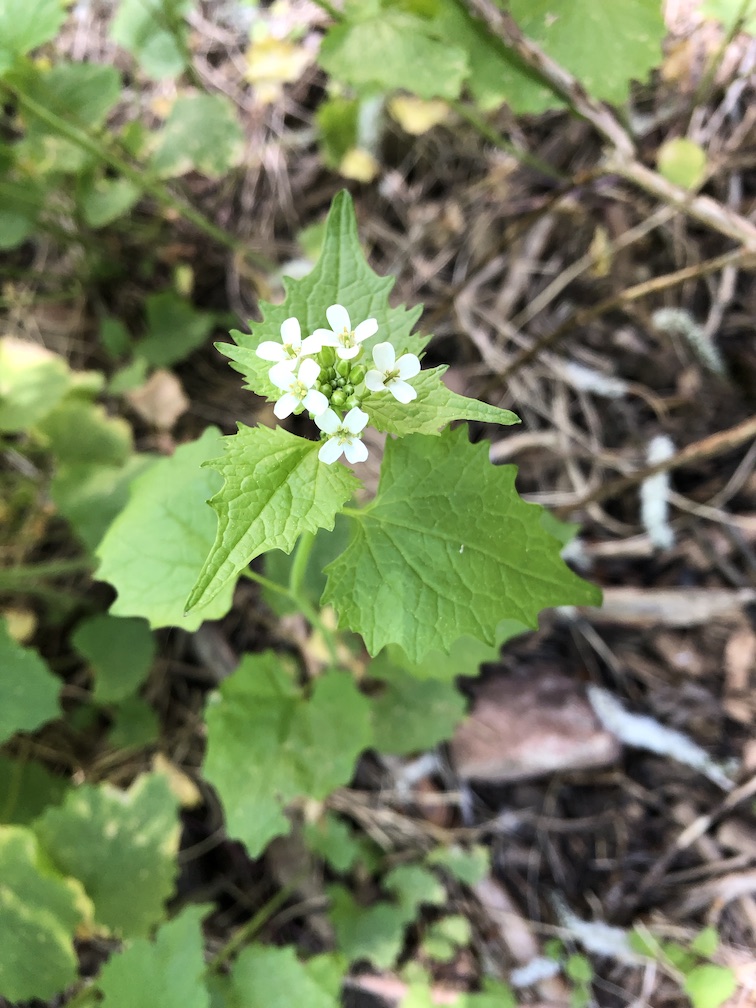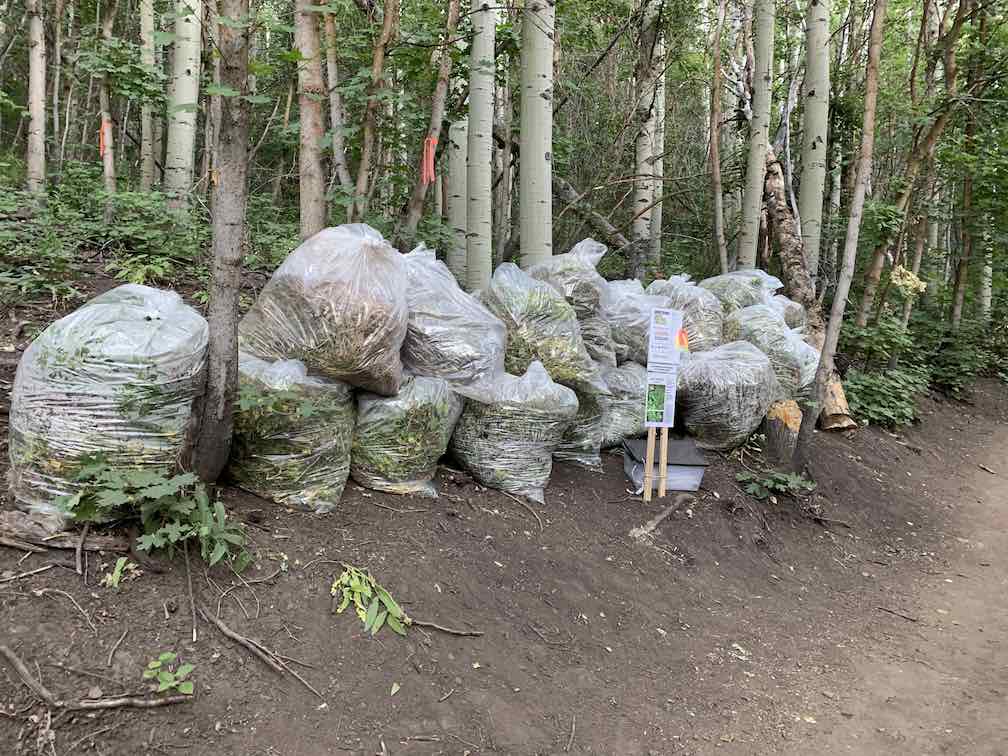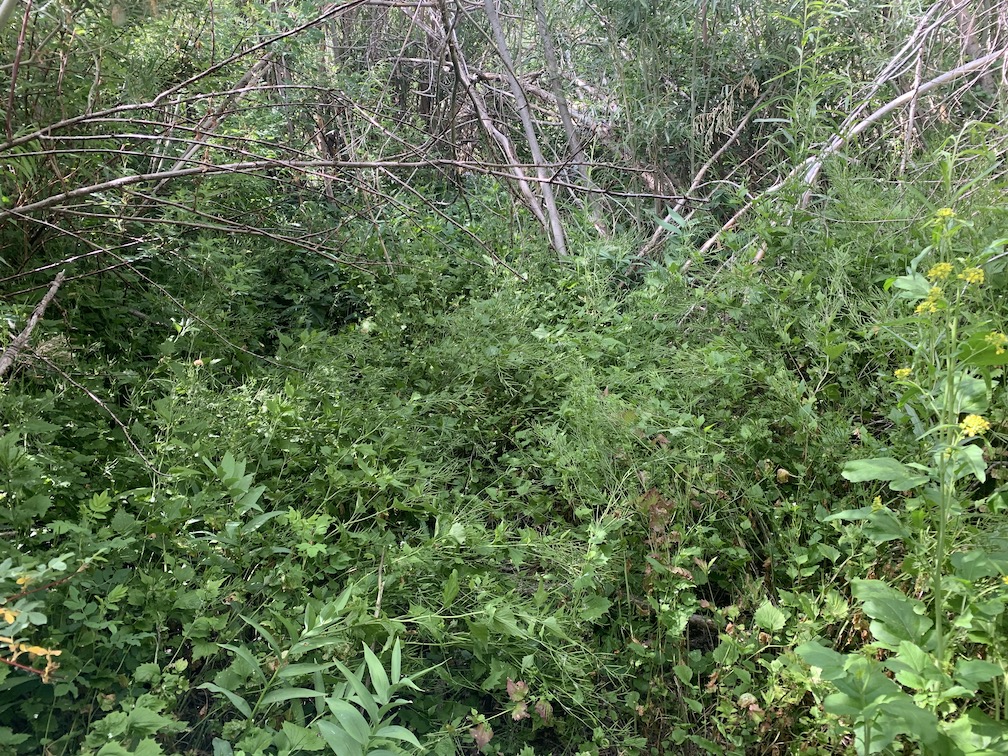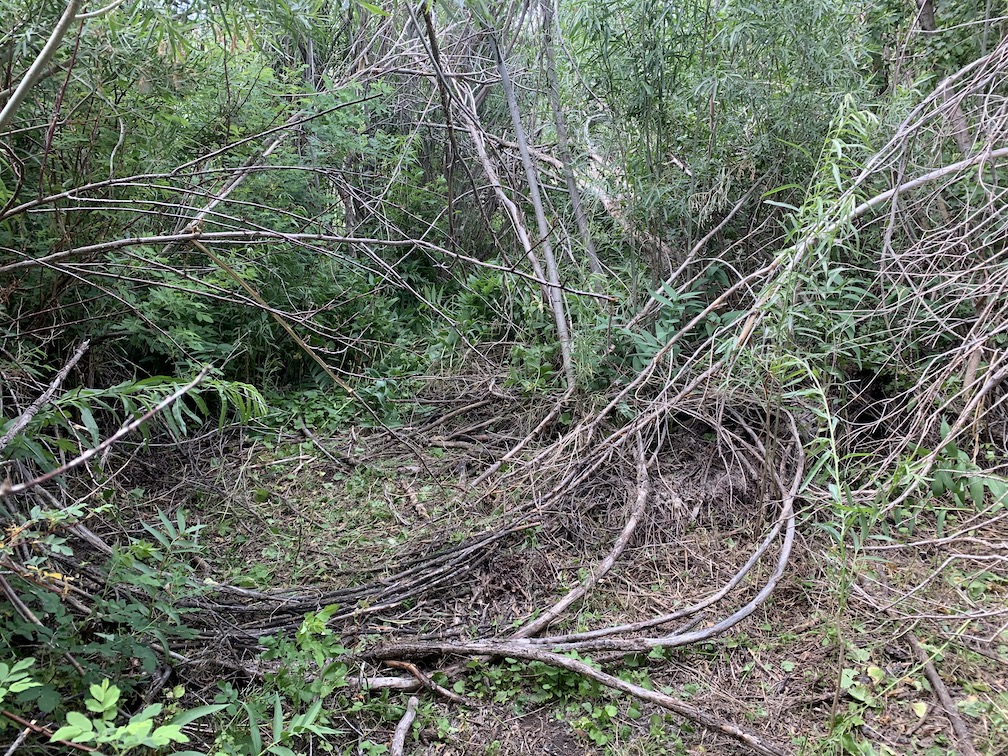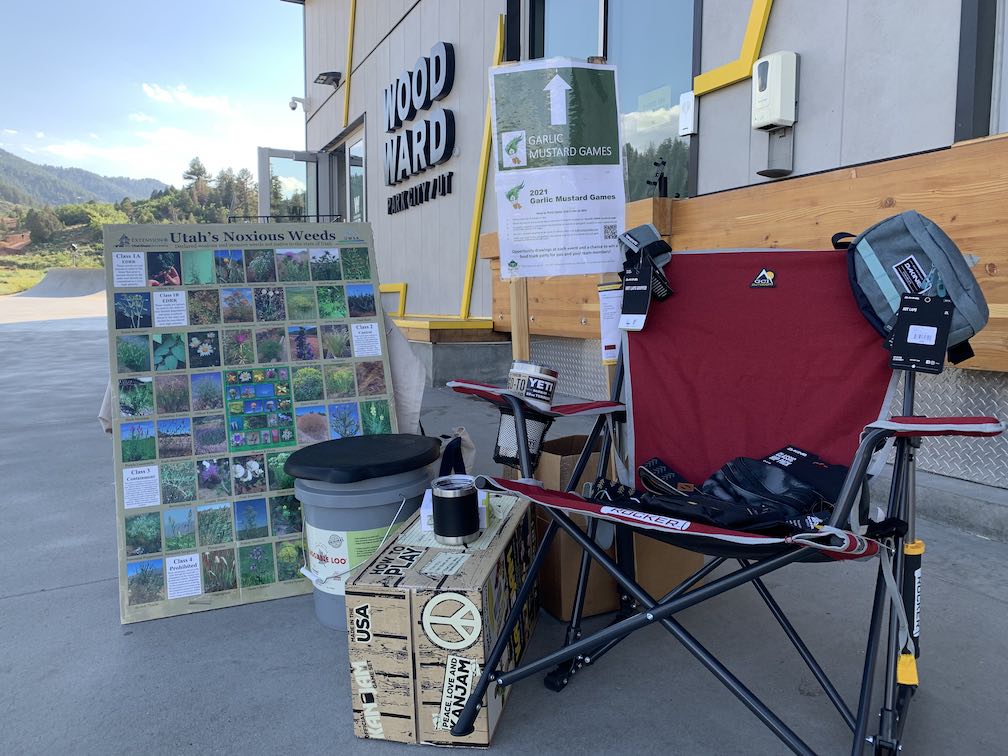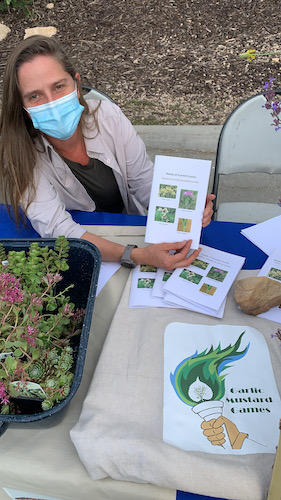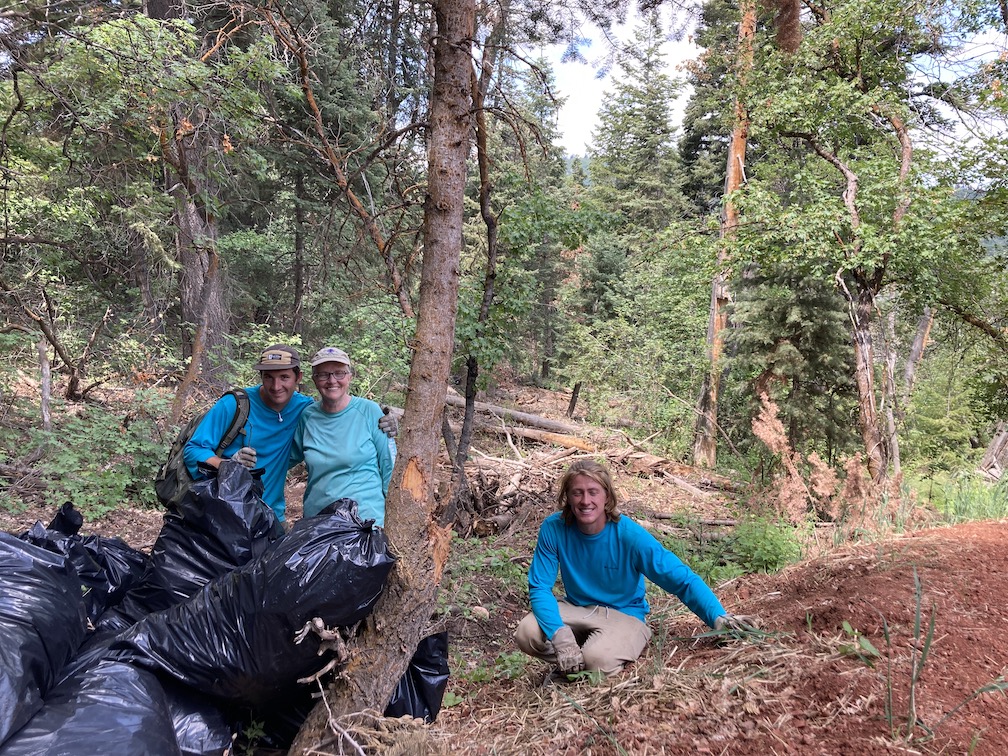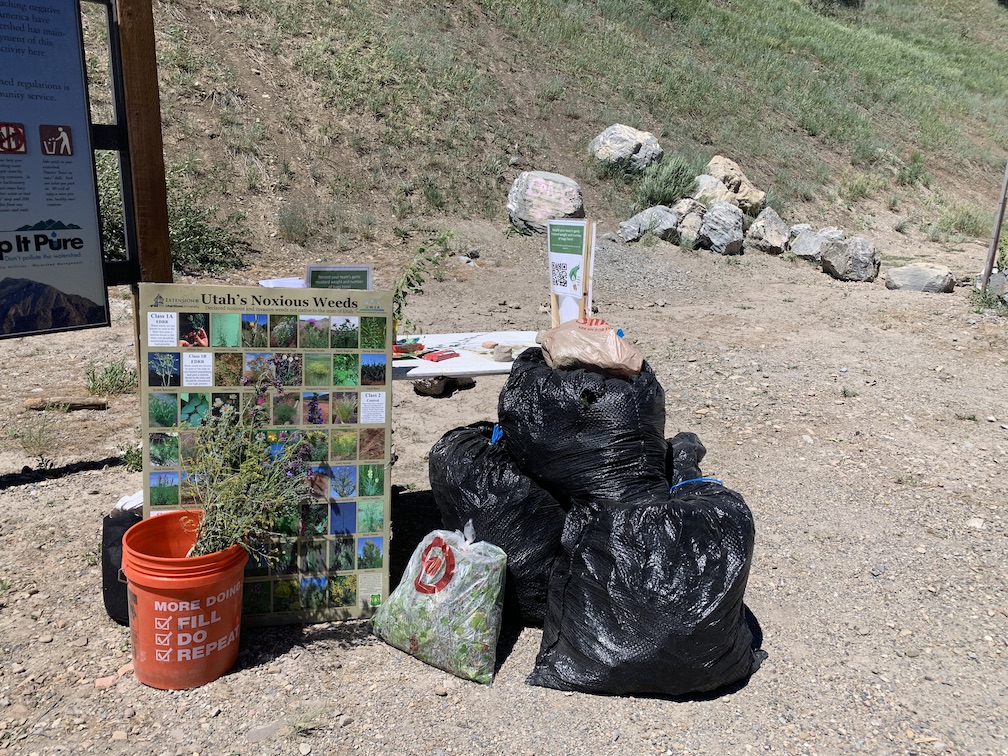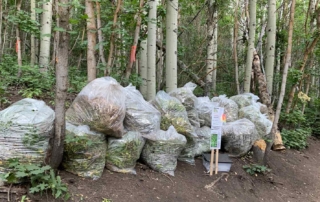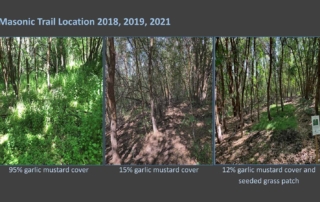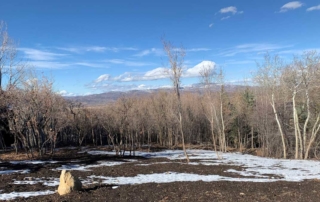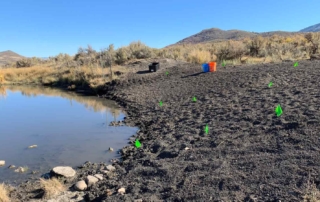Garlic Mustard Games
Ecology Bridge LLC & Summit CWMA Climate Fund 2020 Project
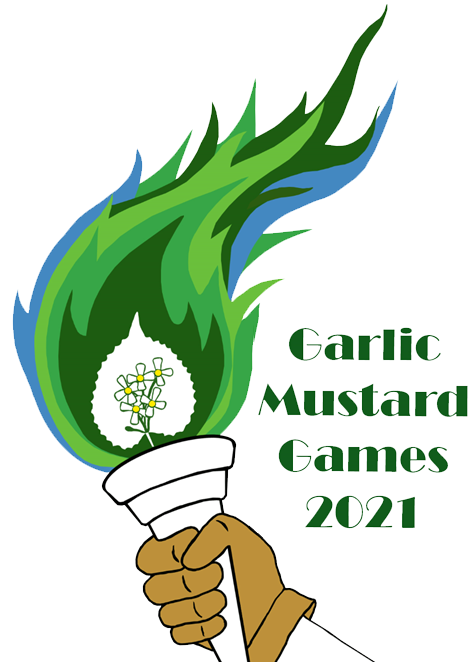
Environmental and climatic impacts of fire and flooding are easily observed. Carbon emissions per acre due to fire, soil erosion and sedimentation of water ways can be catastrophic. Less obvious is the roll of noxious weeds in increasing the likelihood of these natural disasters and the direct impacts noxious weeds can have on the environment, wildlife and climate change.
Garlic mustard, for example, is a Utah Class 1B Noxious Weed that rapidly invades through self-pollination, high seed output and a ten-year seedbank. It is allelopathic such that it prevents germination and growth of other plant species and interrupts important soil fungal relationships with trees that help protect them from drought, disease, and beetle kill. It has displaced native plant species that wildlife and pollinators rely on and threatens tree health. Combined, the direct and indirect impacts of garlic mustard increase risk of wildfire, erosion and sedimentation.
One of the greatest challenges to preventing noxious weed invasion and ensuring proper weed control is a lack of community knowledge. Because many community members are not familiar with noxious weeds, they do not control them. The lack of control of small residential weed populations, much like a wildfire, quickly becomes a community level problem with serious environmental consequences. Meanwhile on the other end of the spectrum are residents that too willingly control any unwanted plant with herbicide whether it poses a threat or not. With no required training for residents, unintended misuse and overuse of herbicides in gardens and yards is common.
With funding from the Park City Community Foundation’s Climate Fund, the Utah Department of Agriculture and Food and our partnership with the Summit CWMA, we developed a community wide garlic mustard control competition. Partners, such as Dakine, Kuhl, Woodward and Arcade, donated outdoor gear and accessories and bike passes to help generate interest. The competition offered multiple events at which participants helped to pull garlic mustard and were entered into an opportunity drawing and the top weeding team awarded prizes at each event. A food truck party for the teams that removed the most garlic mustard was the overall grand prize.
Six official garlic mustard weeding events were held at locations chosen for their or historic importance and frequent use by locals and tourists. Staff experienced in garlic mustard control were present at each event to assist volunteers in identifying garlic mustard and answer participant and passerby’s questions. In addition to organized events, residents that could not attend events, but wanted to participate, pulled garlic mustard within their neighborhoods, on their own. These participants were asked to weed garlic mustard, bag it, leave bagged garlic mustard at trail heads, the road or drop them off at an event.
A total of 45 volunteers participated in the removal of 1,776 pounds of garlic mustard. Efforts by volunteers and support staff prevented the application of 15 backpack sprayers worth of herbicide.
To celebrate the many people that participated in the program in 2021, Ecology Bridge and the Summit CWMA held a Fall Garlic Mustard Games Food Truck party. Because the cost per person for the food truck was less than expected, we were able to invite everyone that volunteered to enjoy the delicious eats of Komrads food truck and a final round of prizes for the season.
By incentivizing residents and visitors with an opportunity drawing and a food truck party, this project brought residents and tourist to areas invaded by garlic mustard and other noxious weeds to see for themselves the magnitude of the problem. The time volunteers spent pulling garlic mustard and other gave them a better understanding of the labor required to successfully manage noxious weeds in our open spaces. Regarding garlic mustard specifically, participants learned why we use the combination of weeding and herbicide. They also learned what proper use of herbicide entails and the importance of selecting the most effective herbicide with the lowest potential for unintended impacts to natives for each weed species. Participants learned that the most common misuse of herbicide is in the residential sector as a result of ignoring label instructions. Most importantly, they learned how they can help reduce the spread of noxious weeds and control them with herbicide being the last resort.
This project aimed to aid in restoring forest capacity to sequester carbon and to educate the public so they can aid in reducing noxious weed impacts to our local forests. The reduction of garlic mustard and outreach efforts added to the past years of garlic mustard control enabled us to make more headway towards eradicating this weed and restoring native species and ecosystem function. These functions are crucial to maintaining current soil carbon levels and sequestering additional carbon into the future.

